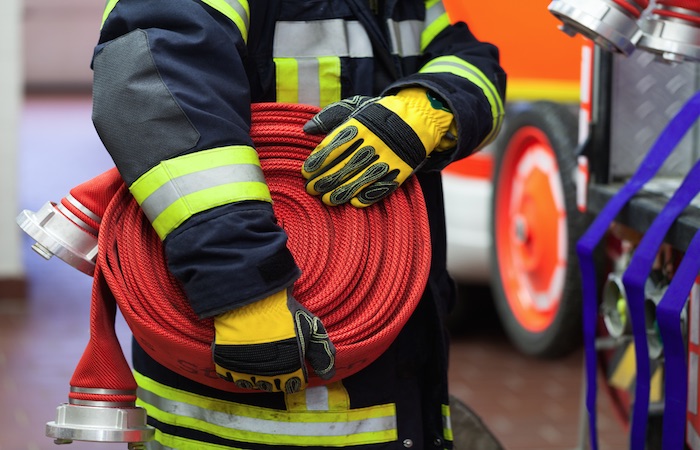
Firefighters who are members of the Fire Brigades Union (FBU) will consult on proposals for a four-year pay deal, which includes a 2% pay increase in 2017.
The pay deal, which has been proposed by the Fire and Rescue Services National Employers, features a 2% increase in basic pay from 1 July 2017, which includes continuing professional development payments. It also sets out a possible pay increase of 3% from 1 April 2018, which would form part of the 2017 pay settlement.
The 2018 pay increase is dependent on whether the FBU can negotiate pay awards for 2018, 2019 and 2020 as part of an overall pay framework with the National Joint Council (NJC) for Local Authority Fire and Rescue Services. The NJU is the joint body that sets the pay, terms and conditions framework for uniformed employees in the UK’s fire service. Fire and rescue service pay is subject to collective bargaining through the NJC.
FBU members are due to consider the current pay deal at local meetings. The union’s executive council will meet on 24 July 2017 to discuss the results of the member consultation.
The FBU contends that the offer is inadequate, that any settlement payments for 2017 need to be paid within the same year, and that the pay offer does not take into account the increased workload of firefighters, for example in dealing with terror attacks.
Matt Wrack, general secretary at the FBU, said: “Firefights have endured seven years of pay restraint imposed by the government. Their real wages are falling and our members are struggling to make ends meet. Firefighters have, in addition, taken on many new roles that are not being recognised in their pay.
“This offer demonstrates that the 1% cap is dead in the water but the offer from our employers is simply not enough. It does not recognise the extra work firefights have been doing, it fails to address their falling living standards and, despite hints at improvements, does not make clear what they will be earning in future years. This offer lacks detail and credibility.”
Councillor Nick Chard, spokesperson at the National Joint Council Employers Group, added: “We share the view of firefighters, and the unions, that they deserve to be paid more. At the start of this journey, we have offered a figure which is double that originally planned for in budgets. This will be very challenging for fire and rescue authorities who will need to consider how to fund this additional expenditure. But it is a clear sign of our commitment.
“However, fire and rescue services have had to deal with significantly reduced finances over recent years. Therefore, in order to be able to apply further increases, we will need to urgently call upon governments across the UK, to provide funding which will enable us to do so and deliver change.
BESbswyBESbswyBESbswyBESbswyBESbswyBESbswyBESbswyBESbswyBESbswyBESbswyBESbswyBESbswy
“We are firmly committed to ensuring higher levels of pay for firefighters as soon as possible, in the context of agreeing a deal on a new pay framework, which recognises fire authority and community needs around greater flexibility, and our shared aspirations in terms of increased pay for firefighters. We are happy to work with the FBU in doing so.”